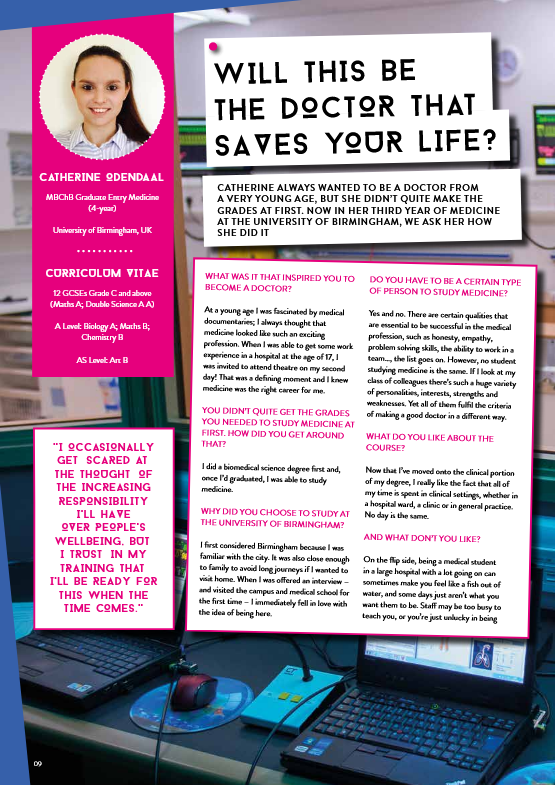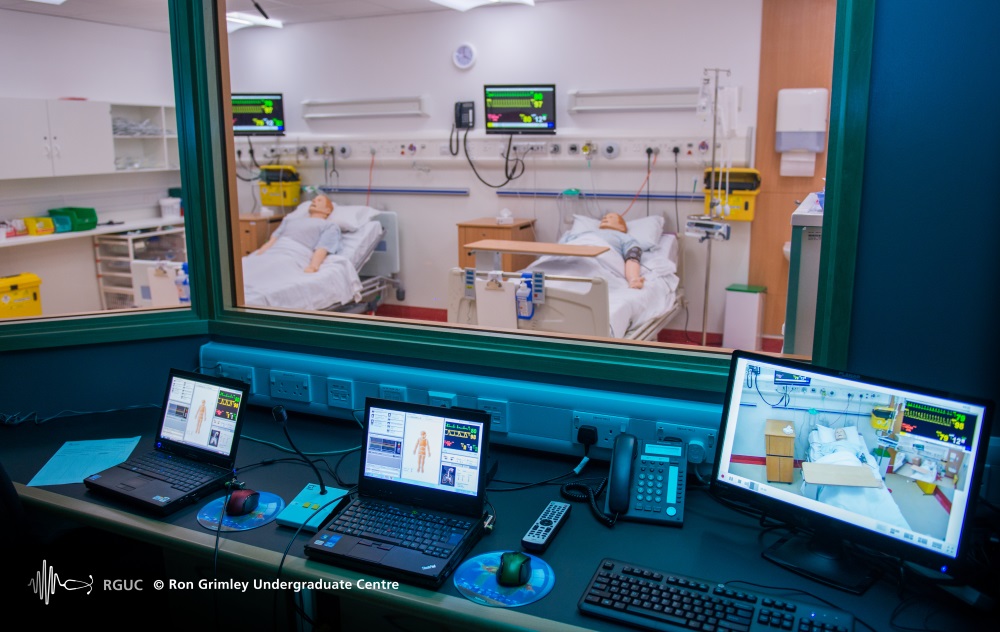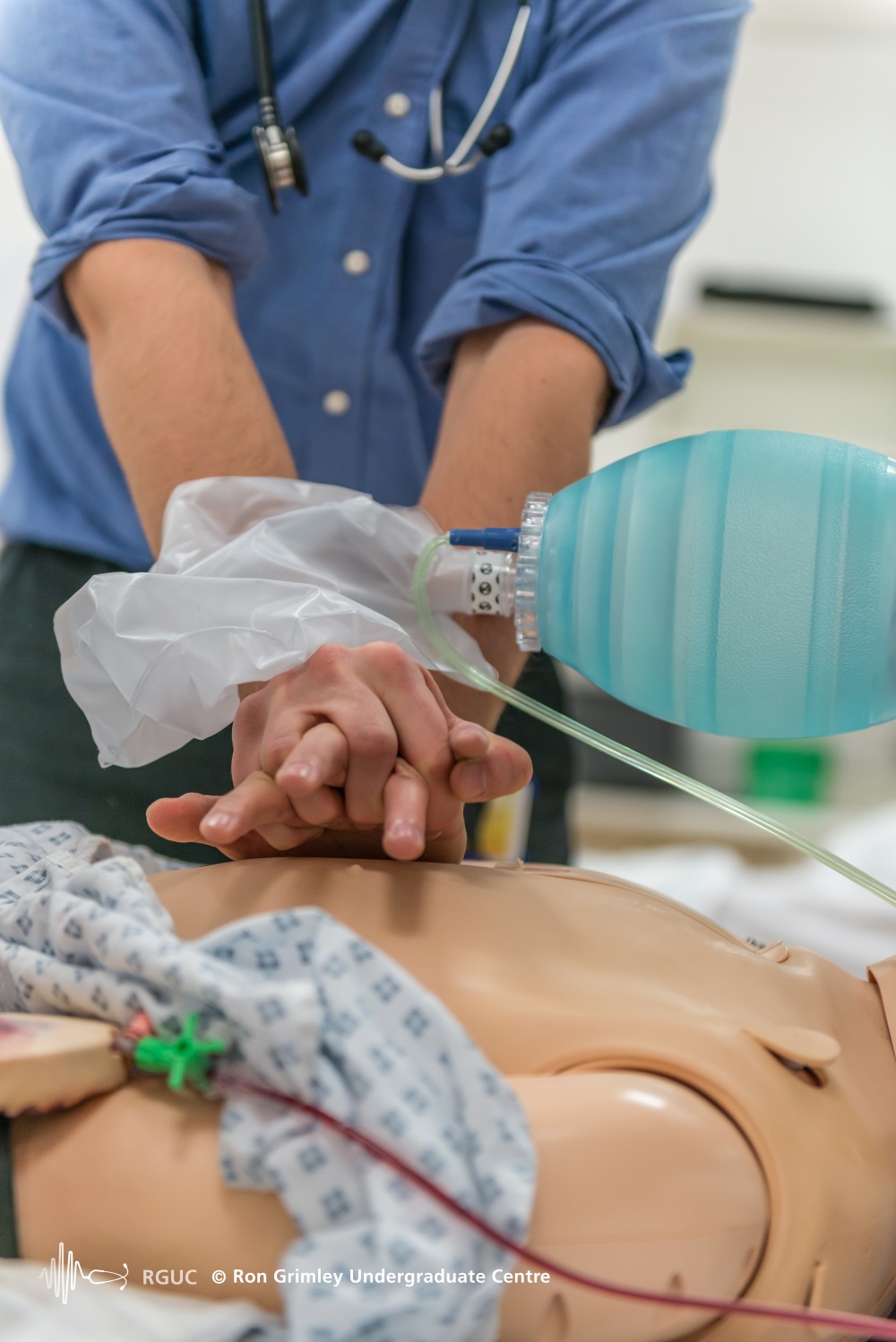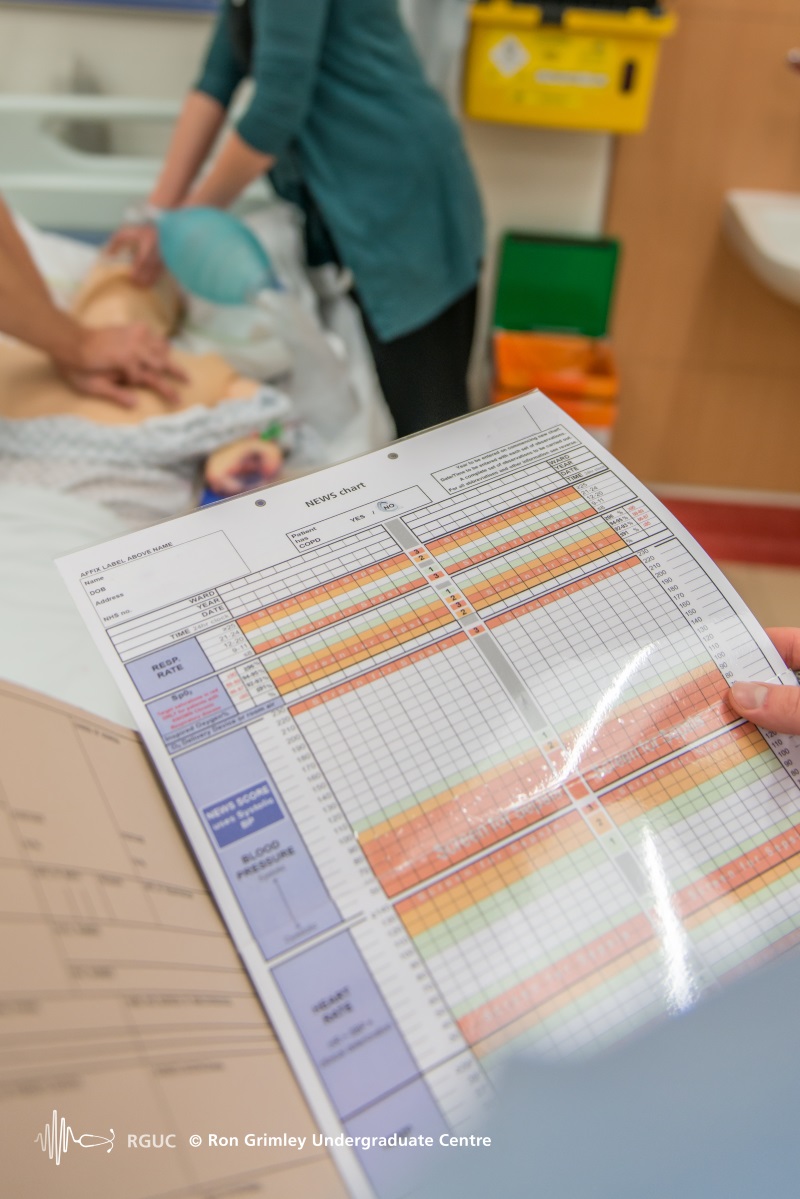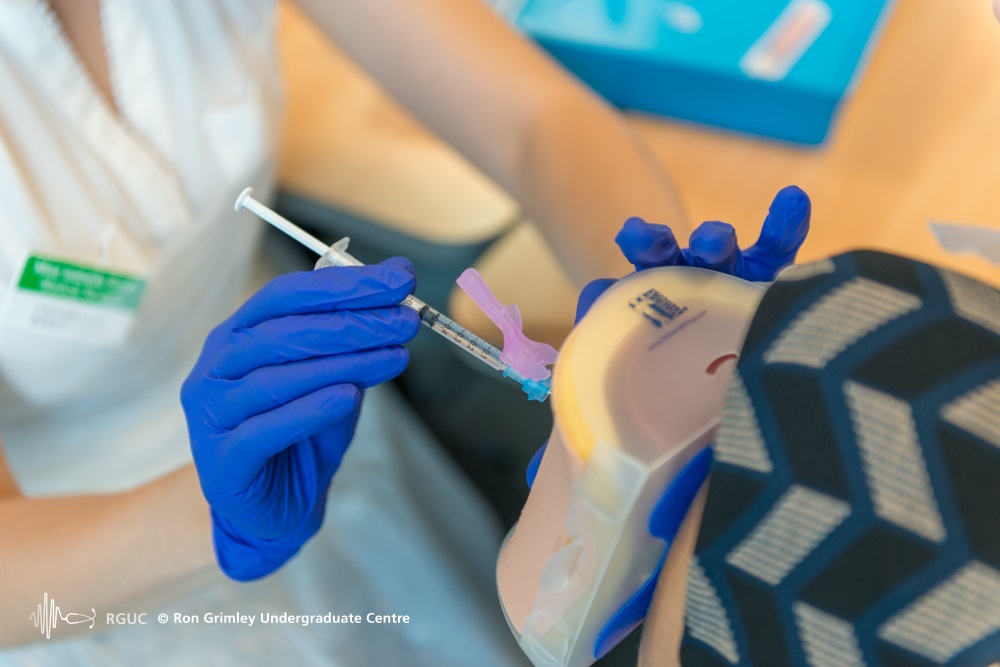
Catherine Odendaal, MBChB Graduate Entry Medicine
(4-year)
University of Birmingham, UK
Curriculum Vitae
12 GCSEs Grade C and above (Maths A; Double Science A A)
A Level: Biology A; Maths B; Chemistry B
AS Level: Art B
The SimLab control room
A student practises cardiopulmonary resuscitation (CPR) on a simulated patient
Interpreting patient observation data
A student practises giving an intramuscular injection
These four images are reproduced with kind permission from the Ron Grimley Undergraduate Centre – Media Team, www.rguc.co.uk
Will this be the doctor that saves your life?
Will this be the doctor that saves your life?
Catherine always wanted to be a doctor from a very young age, but she didn’t quite make the grades at first. Now in her third year of medicine at the University of Birmingham, we ask her how she did it
What was it that inspired you to become a doctor?
At a young age, I was fascinated by medical documentaries; I always thought that medicine looked like such an exciting profession. When I was able to get some work experience in a hospital at the age of 17, I was invited to attend theatre on my second day! That was a defining moment and I knew medicine was the right career for me.
You didn’t quite get the grades you needed to study medicine at first. How did you get around that?
I did a biomedical science degree first and, once I’d graduated, I was able to study medicine.
Why did you choose to study at the University of Birmingham?
I first considered Birmingham because I was familiar with the city. It was also close enough to family to avoid long journeys if I wanted to visit home. When I was offered an interview – and visited the campus and medical school for the first time – I immediately fell in love with the idea of being here.
STUDYING MEDICINE
Do you have to be a certain type of person to study medicine?
Yes and no. There are certain qualities that are essential to be successful in the medical profession, such as honesty, empathy, problem solving skills, the ability to work in a team…, the list goes on. However, no student studying medicine is the same. If I look at my class of colleagues, there’s such a huge variety of personalities, interests, strengths and weaknesses. Yet all of them fulfil the criteria of making a good doctor in a different way.
What do you like about the course?
Now that I’ve moved onto the clinical portion of my degree, I really like the fact that all of my time is spent in clinical settings, whether in a hospital ward, a clinic or in general practice. No day is the same.
And what don’t you like?
On the flip side, being a medical student in a large hospital with a lot going on can sometimes make you feel like a fish out of water, and some days just aren’t what you want them to be. Staff may be too busy to teach you, or you’re just unlucky in being able to find the learning opportunities you were hoping for. You just have to take it as it comes and learn to rely on yourself as an independent learner.
The University of Birmingham is linked to Queen Elizabeth Hospital Birmingham. How much of your time is spent there?
So far, I’ve spent one semester at the Queen Elizabeth Hospital. I’ve also had placements in Hereford, Dudley and Worcester. There are a lot of teaching hospitals and GP practices in Birmingham and surrounding areas, which are linked to the medical school I’m at.
Have you had an experience at a hospital or other clinical setting that either led you to question your career choice or motivated you to continue?
I’ve witnessed some very challenging things, which haven’t made me question my choice in career but have brought home the realisation of what I’m undertaking and how difficult it can be at times. I occasionally get scared at the thought of the increasing responsibility I’ll have over people’s wellbeing, but I trust in my training that I’ll be ready for this when the time comes. There are lots of things that motivate me, even if it’s a small compliment from a senior doctor or putting the training into practice and doing it well – it makes you believe that you’re capable of doing the job!
The SimLab control room
A student practises cardiopulmonary resuscitation (CPR) on a simulated patient
Interpreting patient observation data
A student practises giving an intramuscular injection
These four images are reproduced with kind permission from the Ron Grimley Undergraduate Centre – Media Team, www.rguc.co.uk
What was it that inspired you to become a doctor?
At a young age, I was fascinated by medical documentaries; I always thought that medicine looked like such an exciting profession. When I was able to get some work experience in a hospital at the age of 17, I was invited to attend theatre on my second day! That was a defining moment and I knew medicine was the right career for me.
You didn’t quite get the grades you needed to study medicine at first. How did you get around that?
I did a biomedical science degree first and, once I’d graduated, I was able to study medicine.
Why did you choose to study at the University of Birmingham?
I first considered Birmingham because I was familiar with the city. It was also close enough to family to avoid long journeys if I wanted to visit home. When I was offered an interview – and visited the campus and medical school for the first time – I immediately fell in love with the idea of being here.
STUDYING MEDICINE
Do you have to be a certain type of person to study medicine?
Yes and no. There are certain qualities that are essential to be successful in the medical profession, such as honesty, empathy, problem solving skills, the ability to work in a team…, the list goes on. However, no student studying medicine is the same. If I look at my class of colleagues, there’s such a huge variety of personalities, interests, strengths and weaknesses. Yet all of them fulfil the criteria of making a good doctor in a different way.
What do you like about the course?
Now that I’ve moved onto the clinical portion of my degree, I really like the fact that all of my time is spent in clinical settings, whether in a hospital ward, a clinic or in general practice. No day is the same.
And what don’t you like?
On the flip side, being a medical student in a large hospital with a lot going on can sometimes make you feel like a fish out of water, and some days just aren’t what you want them to be. Staff may be too busy to teach you, or you’re just unlucky in being able to find the learning opportunities you were hoping for. You just have to take it as it comes and learn to rely on yourself as an independent learner.
The University of Birmingham is linked to Queen Elizabeth Hospital Birmingham. How much of your time is spent there?
So far, I’ve spent one semester at the Queen Elizabeth Hospital. I’ve also had placements in Hereford, Dudley and Worcester. There are a lot of teaching hospitals and GP practices in Birmingham and surrounding areas, which are linked to the medical school I’m at.
Have you had an experience at a hospital or other clinical setting that either led you to question your career choice or motivated you to continue?
I’ve witnessed some very challenging things, which haven’t made me question my choice in career but have brought home the realisation of what I’m undertaking and how difficult it can be at times. I occasionally get scared at the thought of the increasing responsibility I’ll have over people’s wellbeing, but I trust in my training that I’ll be ready for this when the time comes. There are lots of things that motivate me, even if it’s a small compliment from a senior doctor or putting the training into practice and doing it well – it makes you believe that you’re capable of doing the job!
LIFE AFTER UNI
What will happen when you finish the course?
When I graduate, I hope to enter the two-year foundation programme as a junior doctor. After that, I have a lot of options open to me and I can think about specialising in a specific area.
Other than becoming a doctor, what other avenues are open to students on your course?
When undertaking a medical degree there’s an option to intercalate in a different subject [‘to intercalate’ means to take another degree as well as the medical degree]. Depending on the subject you choose, this will open up several other opportunities. For example, if you chose to study business management, this would put you in good stead for a medical management position in the future. There are some pretty niche jobs out there that require a medical degree. Or at least, your medical degree would be a distinct advantage if you decided not to become a doctor: coroner, researcher, medical journalist, clinical lecturer; there’s also the medico-legal stuff. I know a lot of people do intercalating degrees if they’re specifically interested in different areas like law or business.

